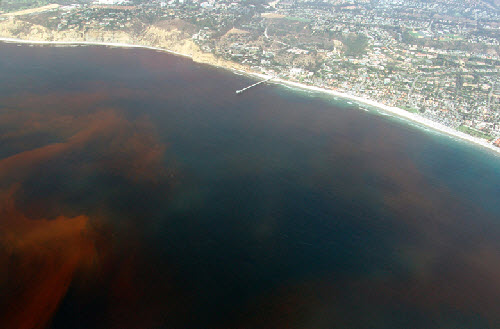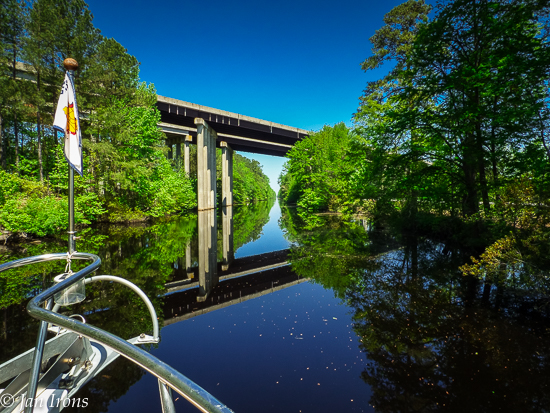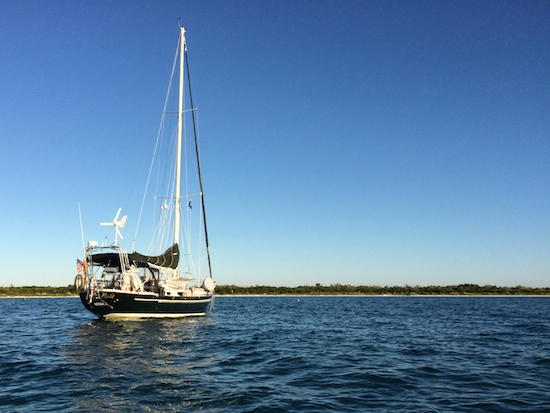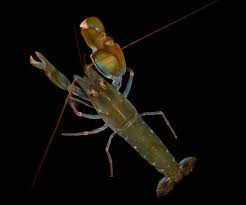My eyes are itchy. My throat scratchy, sneezing and coughing, I feel like I’m back in Melbourne FL for the SSCA Gam where I passed my morse code test for my General Ham License before we left to go cruising. I was miserable. We haven’t experienced this in the entire time we were away cruising, but apparently it’s hovering just offshore Sanibel Island.
Years ago in Melbourne, I’d never been around a red tide before and heartily hoped that I’d never experience it again. It was hard to breathe. But now in wisps and breezes, when the wind is from the West, I’m remembering what it’s all about. Uugghhh — I knew there was a reason I was dreading this cold front! But at least there’s no snow and ice behind it, like further north.
From Wikipedia: Red tide is a common name for a phenomenon also known as an algae bloom (large concentrations of aquatic microorganisms), an event in which marine algae accumulate rapidly in the water column resulting in discoloration of the surface water. It is usually found in coastal areas — such as just offshore from Sanibel Island? We’ve never heard of red tide here before, but my allergies are killing me!
When the algae are present in high concentrations, the water appears to be discolored or murky, varying in color from purple to almost pink, normally being red or green. Not all algae blooms are dense enough to cause water discoloration, and not all discolored waters associated with algae blooms are red.
Some red tides are associated with the production of natural toxins, depletion of dissolved oxygen or other harmful effects, and are generally described as harmful algal blooms. The most conspicuous effects of these kind of red tides are the associated wildlife mortalities of marine and coastal species of fish, birds, marine mammals, and other organisms. In the case of Florida red tides, these mortalities are caused by exposure to a potent neurotoxin called brevetoxin which is produced naturally by the marine algae Karenia brevis. We haven’t seen any indications this year’s Red Tide has been harmful to coastal creatures, but we may be too far inland to know.
While doing a bit of research on my allergic reaction … According to American College of Chest Physicians (2007, January 8). ‘Red Tide Toxins’ Leave Beachgoers Breathless”:
“In the normal population, inhaled aerosolized red tide toxins can lead to eye irritation, runny nose, nonproductive cough, and wheezing. However, these symptoms usually subside after leaving beach areas,” said study author Lora E. Fleming, MD, PhD, University of Miami Rosenstiel School of Marine and Atmospheric Science, Miami, FL. “Our study shows that Florida red tide toxins may have a greater impact on patients with asthma, who experienced significant respiratory problems and decreased lung function after just one hour of beach exposure to the toxins.”
Luckily the symptoms usually subside after leaving the beach … unless you’re on a boat in a marina with the wind blowing in from offshore where the algae bloom/red tide resides! They may be worse in coastal areas with active surf. At least on the gulf side of Florida, there’s not normally surf breaking waves of any size. Good thing, otherwise we might have to go visit my Dad in Lakeland FL … away from the coastline!
Anyone with more experience with Red Tide? I cannot imagine actually sailing through one – I might die of these allergies! Please leave a comment & share your experiences!














We’ve had some issues with Red (or Brown) Tide here in Port Aransas, TX this year although not as bad as years past. It is the only reason I welcome the cooler weather of winter… it inhibits the growth of the blooms. The other good thing is the tidal flow, we’ve had some thick blooms in our marina but thankfully the tide washes it back out again.
The most irritating effect of the Brown Tide is the choking cough that it brings. We spent a week aboard in late October and had about 2 days that we could hardly work. Hard to catch a full breath. The fish kill was also an issue… even if you could breath, all you would get was a lung full of dead fish odor. YUCK!
C’mon WINTER!